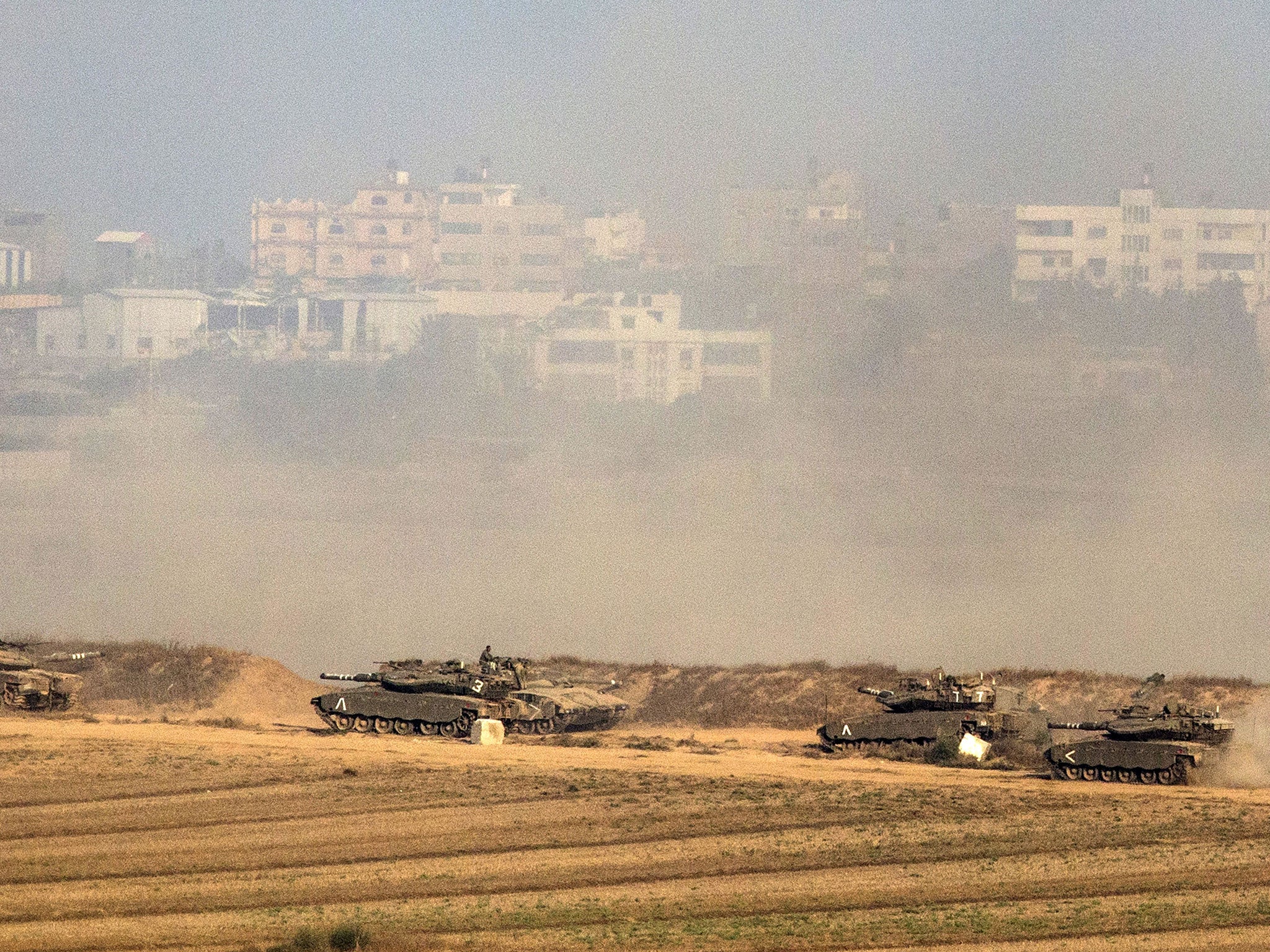Israel-Gaza conflict: 'Deadliest day' leaves 65 Palestinians and 13 Israeli soldiers dead as Gaza offensive widens
Deaths include highest toll for Israeli army since 2006 war against Hezbollah in Lebanon

Your support helps us to tell the story
From reproductive rights to climate change to Big Tech, The Independent is on the ground when the story is developing. Whether it's investigating the financials of Elon Musk's pro-Trump PAC or producing our latest documentary, 'The A Word', which shines a light on the American women fighting for reproductive rights, we know how important it is to parse out the facts from the messaging.
At such a critical moment in US history, we need reporters on the ground. Your donation allows us to keep sending journalists to speak to both sides of the story.
The Independent is trusted by Americans across the entire political spectrum. And unlike many other quality news outlets, we choose not to lock Americans out of our reporting and analysis with paywalls. We believe quality journalism should be available to everyone, paid for by those who can afford it.
Your support makes all the difference.At least 65 Palestinians and 13 Israeli soldiers have been killed in the fiercest day of fighting in Gaza since the latest offensive began 13 days ago.
As tanks shelled a neighbourhood that is home to 100,000 people, Hamas claimed it had carried out a major attack causing multiple casualties to the Israeli army.
Military sources later confirmed that 13 soldiers were killed, including seven in a single armoured personnel carrier that was hit by anti-tank fire. The others were killed while setting up positions inside houses that had been taken over.
And while the overground incursion intensified, the sustained shelling of the Shijaiyah district saw Gaza's hospitals flooded with wounded civilians, with some at the Shifa hospital being treated in corridors and courtyards.
Gazan health officials said that 425 Palestinians have now been killed in the conflict and about 3,000 wounded.
Nearly half of those deaths have been reported since the beginning of Thursday's ground offensive, and as the death toll coming from the Shijaiyah continued to rise, the Palestinian President Mahmoud Abbas accused Israel of carrying out a massacre and declared three days of mourning.
The Israeli military said it was pleased with efforts so far to crack down on the system of tunnels used by Hamas militants to avoid air strikes, and in a statement said it had committed more ground troops to “the effort to combat terror”.
The shelling of Shijaiyah appears to have resulted in the heaviest mass casualties among Palestinians since the start of the latest conflict, and included the deaths of the son, daughter-in-law and two small grandchildren of a senior Hamas official, Khalil al-Hayya.
A single video captured from within the neighbourhood, and passed on to reporters by a local, appeared to show at least a dozen corpses – including three children – lying in streets filled with rubble.
The assault continued almost unabated for more than 18 hours, while a brief truce for humanitarian work called by the Red Cross - and agreed to by both sides - broke down within minutes.
Thousands fled the district on foot, and as tank shells began to rip through buildings residents rang in to radio stations pleading for evacuation.
Asked about the civilian impact of the attack, an Israeli military spokesperson said: “Two days ago, residents of Shijaiyah received recorded messages to evacuate the area in order to protect their lives.”
Hamas has kept up its rocket fire into Israeli territories in spite of the increasing ground offensive. And while almost half of its reported arsenal has either been fired or destroyed in missile strikes on stockpiles, the militant group has said it continues to replenish supplies and is prepared for a prolonged conflict.
Though there are further plans to secure a ceasefire with meetings in the coming week, efforts so far involving Egypt, Qatar, France, the UN and others have failed to make any headway.
A senior Qatari source told reporters that the country was due to host a meeting between Mr Abbas, who is based in the occupied West Bank, and UN Secretary-General Ban Ki-moon today, as well as a meeting between Mr Abbas and Hamas leader Khaled Meshaal.
A UN statement said Ban would travel this week across Kuwait, Egypt, Jordan, Israel and the Palestinian territories to discuss the ongoing conflict.
In Israel, the number of people displaced from their homes continues to grow. The Israeli military has urged Palestinians to flee from a growing area of Gaza ahead of more expected attacks – but with borders sealed and around half of the territory’s 1.8 million population having already received evacuation orders, Gazans say they have few safe places left to escape to.
The largest UN agency in Gaza, UNRWA, said about 61,500 people had sought refuge in its buildings, mainly schools - more than in any previous conflict there between Israel and Islamist militants.
Join our commenting forum
Join thought-provoking conversations, follow other Independent readers and see their replies
Comments